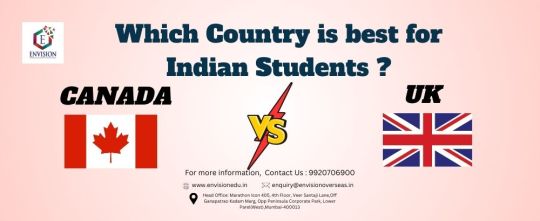#mba cost
Explore tagged Tumblr posts
Text
Choosing the Best Online MBA Programs in Australia
In Australia is Universal Business School MBA Program Mba Online Australia you will find excellence juxtaposed with expansiveness in business education. mba online australia, online mba australia, australia business school, australian business school, Our MBA course is aimed at providing aspiring business leaders with the knowledge and skills for success across borders.
#mba online australia#online mba australia#australia business school#australian business school#mba cost#cost of mba in australia#mba cost in australia#cost of mba#mba fee australia
0 notes
Text
ppl complaining about the new legally blonde prequel coming out didn't seem to get the movie cause elle WAS interesting and smart from the get go????
"i have a 4.0...." "but in fashion merchandising"
girlie's got a business related degree from the beginning, even if it's a "frivolous" thing
i think u rlly missed the main idea?
#personal#omg no i want the FIT MPS in global fashion manageneny#management*** im rlly grumpy cuz like 3 yrs ago it was an MBA but now its an MPS ;^;#which i wanna try to shmooze my way into having my company pay for#(or hop to someone else who WILL pay cuz at work i built basically the same automation system VS has lmao#like my coworker who used to be at VS was like 'u made this....huh this is what VS contracted out')#BUUUUUUUUUUUUT like i was one of the top students in my class for my art school and ran a student org#and when i told ppl i wanted to do either animation or apparel with my graphic design degree ppl were sooo nasty#i mean like PROFESSORS and advisors /#:/#so i feel for the character lmao?????? cuz i know for a fact i earn more than my archi and a couple of my ui/ux friends who#like...arent at faangs so.........and im happier than them :)#like ive been on a product development design team as one of two artists for 2.5 years now#and like i have to be in the FASHION MERCHANDISING meetings#and....theyre business meetings about sourcing and costing and meeting minimums to make profits#its not cutesy clothing its....spreadsheets#and my art automation system is also based off of a spreadsheet :)
2 notes
·
View notes
Text
If you're an Indian looking to pursue an MBA in the USA, you have various options. Consider factors like your budget, lifestyle, and preferences when choosing a university. The overall cost for an MBA in the USA ranges from $160,000 to $180,000 per year, covering tuition (around $60,000 to $80,000 annually) and living expenses (approximately $8,000 to $10,000 per month). Keep in mind that the choice of university and your personal lifestyle will influence the total cost. Take a close look at universities that align with your goals and offer a comfortable living situation within your budget.
3 notes
·
View notes
Text
Understanding the Cost of MBA Abroad: A Comprehensive Guide
Pursuing an MBA abroad can be a transformative experience, offering exposure to diverse cultures, global business practices, and networking opportunities. However, it's essential to consider the financial implications before making this significant investment. This article will break down the Cost of MBA Abroad, helping you budget effectively and plan your financial future.
0 notes
Text

Canada vs UK - Best country for Indian Students
Which is better, Canada or the UK? Studying in Canada and the UK is a wise decision because of the high caliber of instruction and illustrious colleges' histories. Canada anticipates approximately 753,000 foreign students studying here, according to the World Vision 2024 report. According to The Pie News, there were 680,000 overseas students enrolled in UK universities during the 2021–2022 academic year. There are parallels between the UK and Canada in terms of geography, culture, responsibilities, availability of free healthcare, etc. Other perks for international students include living expenses, tuition costs, employment opportunities, work alternatives following a work visa, permanent residence, and so forth.
#study in uk#study in uk for indian students#mba in uk for indian students#Study Abroad in UK#masters in uk for indian students#ms in uk for indian students#mba courses in uk for indian students#cost of studying in uk for indian students#Study in Canada
0 notes
Text
Wharton vs. Chicago Booth: Finance B-Schools in the US
When it comes to MBA in finance, many rank the University of Pennsylvania’s Wharton School and the University of Chicago’s Booth School of Business on top. Despite being very young, both schools have built a reputation for churning out great leaders in the finance, banking, and investment management industries. Nevertheless, they all have characteristics of cultures and opportunities for students to develop themselves that suit the concrete learner’s type. This blog will compare these finance behemoths that will aid your MBA decision.
Academic Curriculum
Student Experience and Campus Culture
Career Opportunities and Alumni Network
Admissions and Selectivity
Cost and Financial Aid
Both schools will provide you with the skills and networks needed to succeed in the finance industry. Your decision should be guided by where you see yourself thriving and the impact you want to make in your finance career. For personalized advice on choosing between these top MBA programs, consider consulting with an MBA Admission Consultant at The MBA Edge and make the most informed decision possible.
Read more: https://thembaedge.com/wharton-vs-chicago-booth-finance-b-schools-in-the-us/
0 notes
Text
Project Management Education in Kolhapur: Empowering Future Leaders

Kolhapur, renowned for its historical heritage and industrial growth, offers excellent opportunities for individuals aspiring to excel in project management. Whether you’re considering pursuing an MBA in Project Management or aiming for specialized certifications, Kolhapur provides a nurturing environment for education and professional development.
#mba in project managment#masters in project managment#project managment#project management program#online project management#project management certification#project management institute#project management certification online#project management professional#project management professional certification#mba project management online#project management certification cost
0 notes
Text

Cost of Studying MBA in London: MBA in London Fees for Indian Students
Being the center of the global financial system, London is home to some of the best business schools in the world, which draws Indian students who want to pursue an MBA there. On the other hand, knowing the financial ramifications is essential to organizing your educational path. This post gives a thorough rundown of the price of doing an MBA in London as well as helpful advice on how to efficiently budget these costs.
#study in uk#study in uk for indian students#mba in uk for indian students#Study Abroad in UK#masters in uk for indian students#uk universities without ielts for indian students#best mba colleges in uk for indian students#ms in uk for indian students#mba courses in uk for indian students#cost of studying in uk for indian students#study abroad#best country for studying abroad
1 note
·
View note
Text

#capm certification#CAPM certification#certified associate in project management#associate in project management#capm project management#capm certification cost#capm exam#capm course#pmi capm#distance mba#distance learning mba#distance courses#distance education#distancelearning#distance learning#pgdm#mitsde#pgdm course#pgdm colleges
0 notes
Text
Choosing the Best MBA Format: Regular vs. Online vs. Distance Learning
Choosing the right format for pursuing an MBA is a significant decision that requires careful consideration of various factors. Distance MBA, online MBA, and regular MBA each offer unique advantages and drawbacks, catering to different needs and preferences. Let’s delve into a detailed analysis of these formats to help individuals make informed decisions based on their specific circumstances. 1.…
View On WordPress
#Campus Programs#Career Advancement#Career Continuity#Cost-Effective#Distance Education#Distance Learning#Educational Choices#Educational Formats#flexibility#Global Access#Higher Education#Immersive Learning#Learning Environment#MBA#MBA Decision#networking#Networking Opportunities#Online Education#Online MBA#Professional Development#Pros and Cons#Regular MBA#Self-Discipline#Student Choices#Study Options#Technology Dependency#Time Management#Virtual Learning
0 notes
Text
Best Online MBA in India

It's important to give accredited schools with extensive programs top priority when looking for the best online MBA in India. Seek for an online MBA in India that blends industry relevance with top-notch academics. With their extensive curricula, knowledgeable faculty, and adaptable learning environment, a few universities stand out. Examine choices that place an emphasis on practical applications and strategic leadership abilities. Remember that the best online MBA program should support your professional objectives by providing global perspective, networking opportunities, and training.
#Best Online MBA in India#mba courses#mba duration#online mba course#online mba programs#cost of mba online programs#cheapest online mba in india#online mba courses
0 notes
Text
Best Online MBA Colleges in India

A number of Indian universities provide excellent online MBA programs that combine flexibility with high-quality instruction. The Indian School of Business (ISB), Symbiosis Centre for Distance Learning (SCDL), NMIMS Global Access School for Continuing Education, ICFAI University, and Amity University Online are a few of the best online learning MBA colleges in India. These universities are renowned for their extensive curricula, knowledgeable instructors, and coursework that is pertinent to the industry. In order to find the program that best suits their career objectives and desires, prospective students should conduct extensive research on each one, taking into account elements like faculty expertise, accreditation, and alumni achievement.
#online mba in india#online mba programs#cheapest online mba in india#mba course duration#mba online courses fees#online mba classes#online mba#online mba courses#cost of mba online programs
0 notes
Text
The one weird monopoly trick that gave us Walmart and Amazon and killed Main Street

I'm coming to BURNING MAN! On TUESDAY (Aug 27) at 1PM, I'm giving a talk called "DISENSHITTIFY OR DIE!" at PALENQUE NORTE (7&E). On WEDNESDAY (Aug 28) at NOON, I'm doing a "Talking Caterpillar" Q&A at LIMINAL LABS (830&C).

Walmart didn't just happen. The rise of Walmart – and Amazon, its online successor – was the result of a specific policy choice, the decision by the Reagan administration not to enforce a key antitrust law. Walmart may have been founded by Sam Walton, but its success (and the demise of the American Main Street) are down to Reaganomics.
The law that Reagan neutered? The Robinson-Patman Act, a very boring-sounding law that makes it illegal for powerful companies (like Walmart) to demand preferential pricing from their suppliers (farmers, packaged goods makers, meat producers, etc). The idea here is straightforward. A company like Walmart is a powerful buyer (a "monopsonist" – compare with "monopolist," a powerful seller). That means that they can demand deep discounts from suppliers. Smaller stores – the mom and pop store on your Main Street – don't have the clout to demand those discounts. Worse, because those buyers are weak, the sellers – packaged goods companies, agribusiness cartels, Big Meat – can actually charge them more to make up for the losses they're taking in selling below cost to Walmart.
Reagan ordered his antitrust cops to stop enforcing Robinson-Patman, which was a huge giveaway to big business. Of course, that's not how Reagan framed it: He called Robinson-Patman a declaration of "war on low prices," because it prevented big companies from using their buying power to squeeze huge discounts. Reagan's court sorcerers/economists asserted that if Walmart could get goods at lower prices, they would sell goods at lower prices.
Which was true…up to a point. Because preferential discounting (offering better discounts to bigger customers) creates a structural advantage over smaller businesses, it meant that big box stores would eventually eliminate virtually all of their smaller competitors. That's exactly what happened: downtowns withered, suburban big boxes grew. Spending that would have formerly stayed in the community was whisked away to corporate headquarters. These corporate HQs were inevitably located in "onshore-offshore" tax haven states, meaning they were barely taxed at the state level. That left plenty of money in these big companies' coffers to spend on funny accountants who'd help them avoid federal taxes, too. That's another structural advantage the big box stores had over the mom-and-pops: not only did they get their inventory at below-cost discounts, they didn't have to pay tax on the profits, either.
MBA programs actually teach this as a strategy to pursue: they usually refer to Amazon's "flywheel" where lower prices bring in more customers which allows them to demand even lower prices:
https://www.youtube.com/watch?v=BaSwWYemLek
You might have heard about rural and inner-city "food deserts," where all the independent grocery stores have shuttered, leaving behind nothing but dollar stores? These are the direct product of the decision not to enforce Robinson-Patman. Dollar stores target working class neighborhoods with functional, beloved local grocers. They open multiple dollar stores nearby (nearly all the dollar stores you see are owned by one of two conglomerates, no matter what the sign over the door says). They price goods below cost and pay for high levels of staffing, draining business off the community grocery store until it collapses. Then, all the dollar stores except one close and the remaining store fires most of its staff (working at a dollar store is incredibly dangerous, thanks to low staffing levels that make them easy targets for armed robbers). Then, they jack up prices, selling goods in "cheater" sizes that are smaller than the normal retail packaging, and which are only made available to large dollar store conglomerates:
https://pluralistic.net/2023/03/27/walmarts-jackals/#cheater-sizes
Writing in The American Prospect, Max M Miller and Bryce Tuttle1 – a current and a former staffer for FTC Commissioner Alvaro Bedoya – write about the long shadow cast by Reagan's decision to put Robinson-Patman in mothballs:
https://prospect.org/economy/2024-08-13-stopping-excessive-market-power-monopoly/
They tell the story of Robinson-Patman's origins in 1936, when A&P was using preferential discounts to destroy the independent grocery sector and endanger the American food system. A&P didn't just demand preferential discounts from its suppliers; it also charged them a fortune to be displayed on its shelves, an early version of Amazon's $38b/year payola system:
https://pluralistic.net/2022/11/28/enshittification/#relentless-payola
They point out that Robinson-Patman didn't really need to be enacted; America already had an antitrust law that banned this conduct: section 2 of the the Clayton Act, which was passed in 1914. But for decades, the US courts refused to interpret the Clayton Act according to its plain meaning, with judges tying themselves in knots to insist that the law couldn't possibly mean what it said. Robinson-Patman was one of a series of antitrust laws that Congress passed in a bid to explain in words so small even federal judges could understand them that the purpose of American antitrust law was to keep corporations weak:
https://pluralistic.net/2023/04/14/aiming-at-dollars/#not-men
Both the Clayton Act and Robinson-Patman reject the argument that it's OK to let monopolies form and come to dominate critical sectors of the American economy based on the theoretical possibility that this will lead to lower prices. They reject this idea first as a legal matter. We don't let giant corporations victimize small businesses and their suppliers just because that might help someone else.
Beyond this, there's the realpolitik of monopoly. Yes, companies could pass lower costs on to customers, but will they? Look at Amazon: the company takes $0.45-$0.51 out of every dollar that its sellers earn, and requires them to offer their lowest price on Amazon. No one has a 45-51% margin, so every seller jacks up their prices on Amazon, but you don't notice it, because Amazon forces them to jack up prices everywhere else:
https://pluralistic.net/2024/03/01/managerial-discretion/#junk-fees
The Robinson-Patman Act did important work, and its absence led to many of the horribles we're living through today. This week on his Peoples & Things podcast, Lee Vinsel talked with Benjamin Waterhouse about his new book, One Day I’ll Work for Myself: The Dream and Delusion That Conquered America:
https://athenaeum.vt.domains/peoplesandthings/2024/08/12/78-benjamin-c-waterhouse-on-one-day-ill-work-for-myself-the-dream-and-delusion-that-conquered-america/
Towards the end of the discussion, Vinsel and Waterhouse turn to Robinson-Patman, its author, Wright Patman, and the politics of small business in America. They point out – correctly – that Wright Patman was something of a creep, a "Dixiecrat" (southern Democrat) who was either an ideological segregationist or someone who didn't mind supporting segregation irrespective of his beliefs.
That's a valid critique of Wright Patman, but it's got little bearing on the substance and history of the law that bears his name, the Robinson-Patman Act. Vinsel and Waterhouse get into that as well, and while they made some good points that I wholeheartedly agreed with, I fiercely disagree with the conclusion they drew from these points.
Vinsel and Waterhouse point out (again, correctly) that small businesses have a long history of supporting reactionary causes and attacking workers' rights – associations of small businesses, small women-owned business, and small minority-owned businesses were all in on opposition to minimum wages and other key labor causes.
But while this is all true, that doesn't make Robinson-Patman a reactionary law, or bad for workers. The point of protecting small businesses from the predatory practices of large firms is to maintain an American economy where business can't trump workers or government. Large companies are literally ungovernable: they have gigantic war-chests they can spend lobbying governments and corrupting the political process, and concentrated sectors find it comparatively easy to come together to decide on a single lobbying position and then make it reality.
As Vinsel and Waterhouse discuss, US big business has traditionally hated small business. They recount a notorious and telling anaecdote about the editor of the Chamber of Commerce magazine asking his boss if he could include coverage of small businesses, given the many small business owners who belonged to the Chamber, only to be told, "Over my dead body." Why did – why does – big business hate small business so much? Because small businesses wreck the game. If they are included in hearings, notices of inquiry, or just given a vote on what the Chamber of Commerce will lobby for with their membership dollars, they will ask for things that break with the big business lobbying consensus.
That's why we should like small business. Not because small business owners are incapable of being petty tyrants, but because whatever else, they will be petty. They won't be able to hire million-dollar-a-month union-busting law-firms, they won't be able to bribe Congress to pass favorable laws, they can't capture their regulators with juicy offers of sweet jobs after their government service ends.
Vinsel and Waterhouse point out that many large firms emerged during the era in which Robinson-Patman was in force, but that misunderstands the purpose of Robinson-Patman: it wasn't designed to prevent any large businesses from emerging. There are some capital-intensive sectors (say, chip fabrication) where the minimum size for doing anything is pretty damned big.
As Miller and Tuttle write:
The goal of RPA was not to create a permanent Jeffersonian agrarian republic of exclusively small businesses. It was to preserve a diverse economy of big and small businesses. Congress recognized that the needs of communities and people—whether in their role as consumers, business owners, or workers—are varied and diverse. A handful of large chains would never be able to meet all those needs in every community, especially if they are granted pricing power.
The fight against monopoly is only secondarily a fight between small businesses and giant ones. It's foundationally a fight about whether corporations should have so much power that they are too big to fail, too big to jail, and too big to care.

Community voting for SXSW is live! If you wanna hear RIDA QADRI and me talk about how GIG WORKERS can DISENSHITTIFY their jobs with INTEROPERABILITY, VOTE FOR THIS ONE!

If you'd like an essay-formatted version of this post to read or share, here's a link to it on pluralistic.net, my surveillance-free, ad-free, tracker-free blog:
https://pluralistic.net/2024/08/14/the-price-is-wright/#enforcement-priorities
#pluralistic#Robinson-Patman Act#ftc#alvaro bedoya#monopoly#monopsony#main street#too big to jail#too big to care#impunity#regulatory capture#prices#the american prospect#Max M Miller#Bryce Tuttle#a and p#wright patman
2K notes
·
View notes
Text
Innovate Without Limits: The No Code MBA Experience Best 2023
In this changing and modern world, technology and new ideas keep coming. One new idea that I talk about is “NO Code MBA”. It specifically helps people to create digital stuff like apps and other services without knowing any code. In this blog, we will learn how No Code MBA works, what it is worth, and how we can use it in our business. NO CODE MBA What is a No-Code MBA? The No-Code MBA is a…

View On WordPress
#How much does no-code MBA cost?#is no code mba worth it#Is Nocode the future?#N0-code MBA app#no code mba ai#no code mba fees#no code mba lifetime deal#no code mba pricing#no code mba review#no-code mba#no-code mba appsumo#What is Nocode MBA?#What is the no-code concept?
0 notes
Text
A Guide for International Students traveling to Australia
The top 9 items you should organize before departing on your study abroad trip is listed below.
1. Bringing Your Family to Australia
You can bring your family with you to Australia if you would like them to assist you. They can either list them all on your early visa application, or they can apply for a visitor visa (subclass 600). This can include your children and dependents; if you are under 18, your parents or legal guardians must apply for a Student Guardian visa (subclass 590).
2. Sort Out a Bank Account
Prior to your arrival, you can open an Australian bank account. Numerous options are suitable for students. If you take care of this before you go, you'll have a local EFTPOS card, cash in the bank, and peace of mind regarding your payment options.
3. Apply For a TAX File Number (TFN)
If you want to work in Australia, you will need to get a tax file number. Otherwise, you will end up paying the maximum tax rate. You must wait until you arrive in Australia, but as soon as you do, just:
Logon to the Australian Tax Official website
Confirm you have your visa and proof of ID
And follow the instructions. It’s super easy to sign up.
4. Get Your Keypass Identity Card
You ought to apply for a digital option if you want to avoid always carrying your passport around. You don't have to worry about misplacing or losing your passport! In essence, this is a fully digital ID card that is widely accepted.
Visit the AusPost website to apply for your Keypass and make sure you request the digital version.
You can use your current driver's license, issued in Australia, as proof of identity.
5. Get Your Australian Driver’s Licence
If you wish to drive in Australia and you are there for more than 3 months, you need to get a valid driving licence. which are provided through the below individual state and territory government bodies.
Australian Capital Territory
New South Wales
Northern Territory
Queensland
South Australia
Tasmania
Victoria
Western Australia
You’ll need:
Proof of residency/visa
A government ID/passport
$50 - $150, depending on your state
It will come in your inbox after you make an appointment, have your photo taken, finish an eyesight test, and pay the required amount. Certain international students and those under 25 must additionally take a physical exam.
6. Familiarise Yourself with the Healthcare System
You are expected to have health insurance under OSHC as part of your student visa. You can get various treatments as a result. Make arrangements in advance if you require specialised care, medication, or treatment. Ensure that your medications are available in Australia by asking your doctor to list them.
Read More:
abroad education consultants
scholarship in australia for indian students
#study in australia#Study Abroad in Australia#Study in Australia for Indian Students#mba in australia for indian students#scholarship in australia for indian students#study in australia for indian students after 12th#cost of studying in australia for indian students#abroad education consultants
0 notes